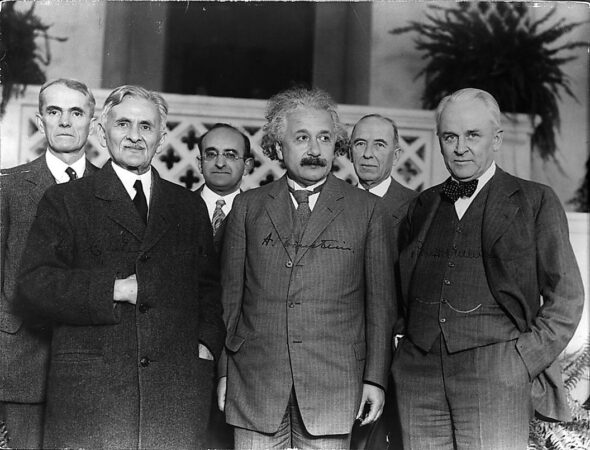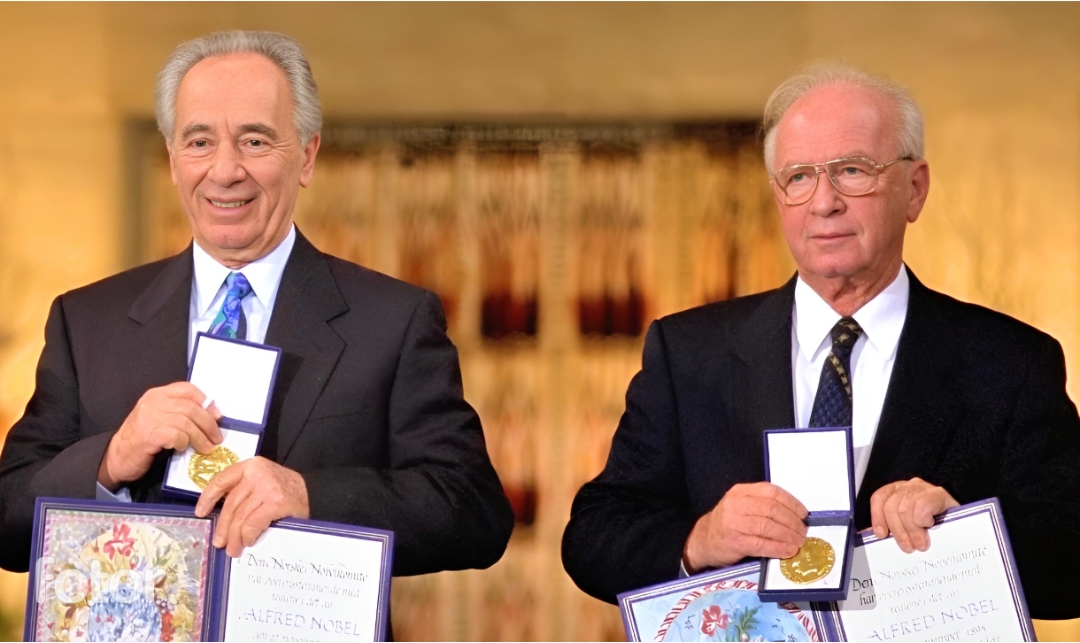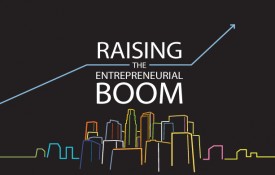It’s one of the most astonishing patterns in global success: Jewish people, a group that makes up just 0.2% of the world’s population, consistently produces 15%–18% of the world’s billionaires and 20%–30% of Nobel Prize winners, and remains overrepresented in fields like law, medicine, media, and technology.
For some, the numbers spark curiosity. For others, envy. But the real question isn’t how they do it, but what can we learn from it?
Because while the Jewish story is unique, the strategies embedded within it—intellectual discipline, risk tolerance, storytelling, and relentless education—are open to anyone willing to step off the well-worn path and commit to building something meaningful.

Three Nobel Laureates in Physics: Front row: Albert A. Michelson (1907 prizewinner), Albert Einstein (1921 prizewinner) and Robert A. Millikan (1923 prizewinner)
A CULTURE BUILT AROUND LEARNING
Jewish success has its roots in a cultural obsession with knowledge. Long before access to education was democratized, Jewish tradition made reading, reasoning, and arguing a central part of childhood. Talmudic study is less about memorizing than about mastering frameworks of thought—a skill set mirrored in modern law, math, coding, and systems thinking.
Takeaway: Curiosity and intellectual rigor compound over time. If you want outsized outcomes, start by sharpening how you think, not just what you know.
PERSECUTION-BRED ADAPTABILITY
For centuries, Jews were banned from owning land and excluded from many trades across Europe. This frequently pushed them into high-leverage fields: finance, medicine, law, and, later, media and tech. In many cases, being boxed out of “normal” paths forced creativity and risk-taking.
Takeaway: Constraints are often where the breakthrough begins. Don’t fear being different. Lean into it—and turn the limitation into your launchpad.

COMMUNITY AND COMPOUNDING
Jewish communities historically operated like decentralized incubators—sharing resources, funding education, and mentoring the next generation. Today, similar effects are seen in Indian tech networks, Nigerian fintech, and Lebanese diasporas. The formula works.
Takeaway: Success accelerates when shared. Find your tribe, invest in each other, and think in terms of generational momentum.
FAILURE WAS NEVER FATAL
In the aftermath of the Holocaust, Soviet repression, and multiple forced migrations, Jewish families around the world rebuilt—often from nothing. What drove them forward wasn’t fear, but a collective ethos: “You cannot destroy an idea whose time has come.” Whether building MGM Studios or Google, or risking everything to emigrate and start over, many Jewish entrepreneurs saw failure not as an end, but a season.
Takeaway: The only real failure is failing to try. The rest is tuition.
LEGACY OVER LIFESTYLE
While the headlines often focus on wealth, the motivation underneath has rarely been purely financial. Instead, it’s been about legacy—repairing the world (tikkun olam), leaving a name that means something, and contributing to something eternal.
Takeaway: Don’t chase clout. Build impact. Legacy will follow.

WHAT THIS MEANS FOR YOU
The remarkable overrepresentation of Jewish individuals in elite circles is not due to privilege or conspiracy. It’s due to principles anyone can adopt:
- Think long-term
- Take intellectual risks
- Surround yourself with other builders
- Use adversity as fuel
- Build for legacy, not just liquidity
In a world obsessed with shortcuts, this is the long game—and the most rewarding one. You don’t need to be born into it. You just need to choose it.













































